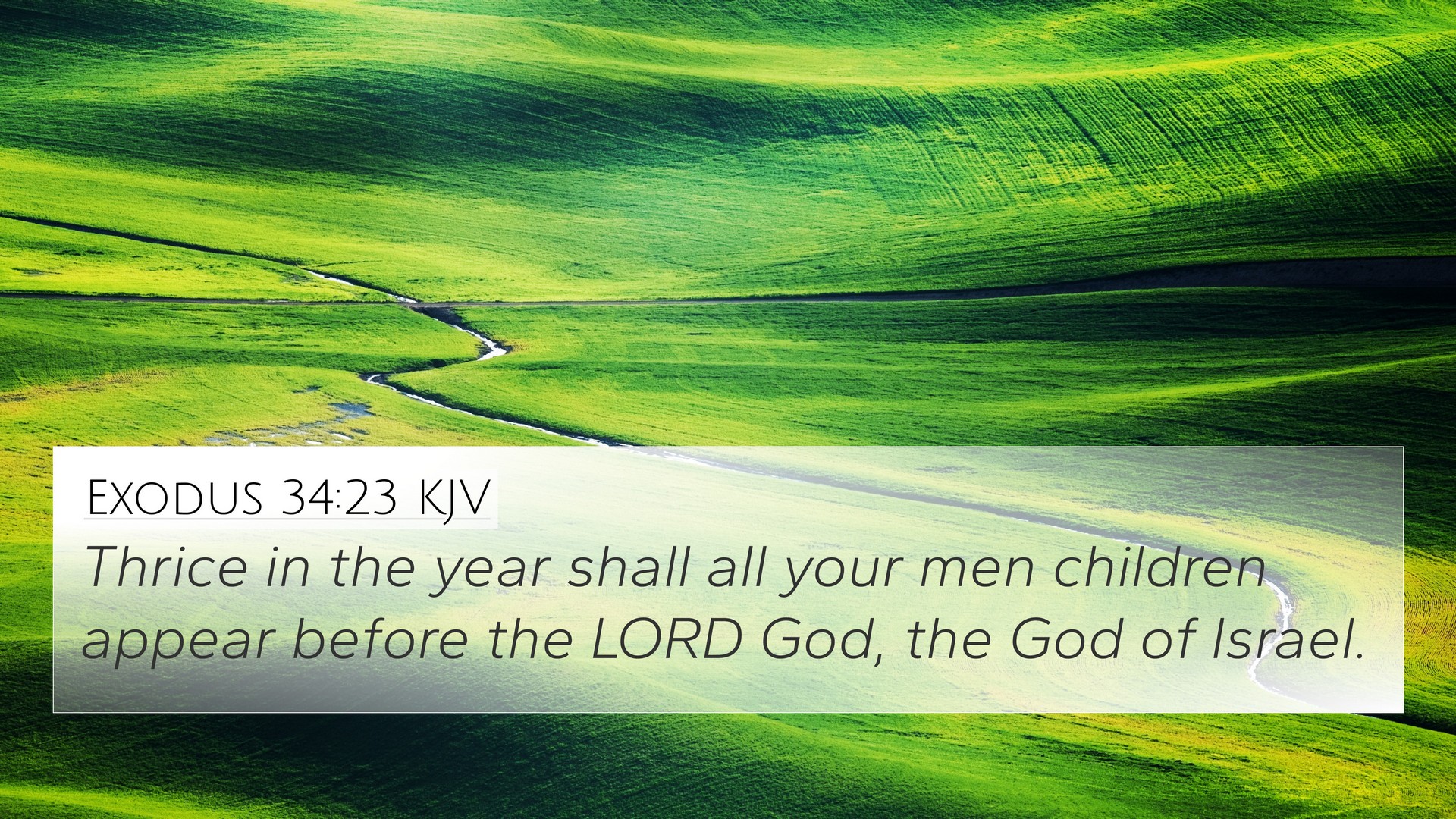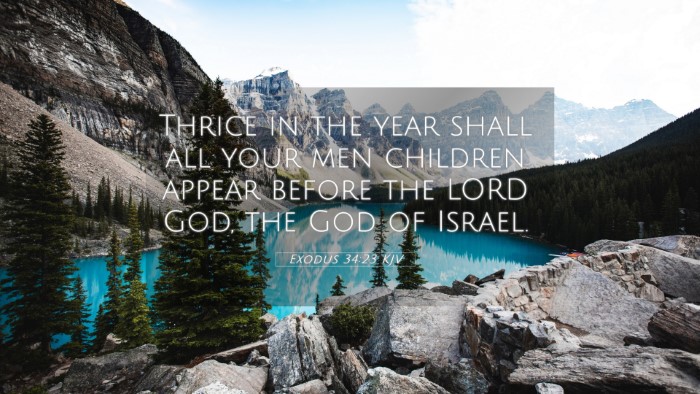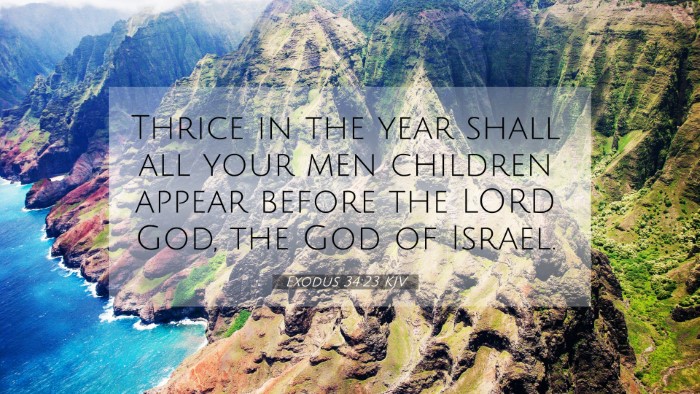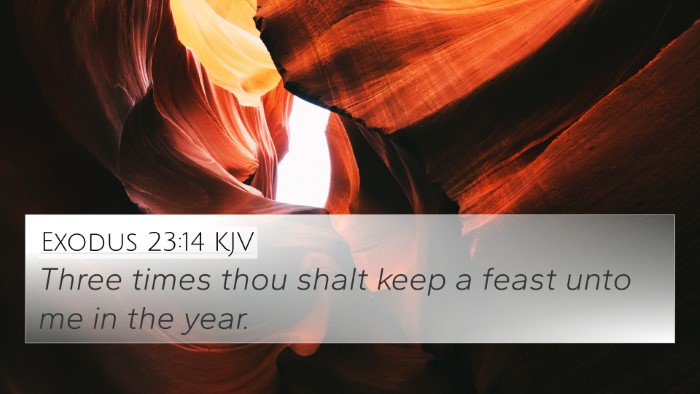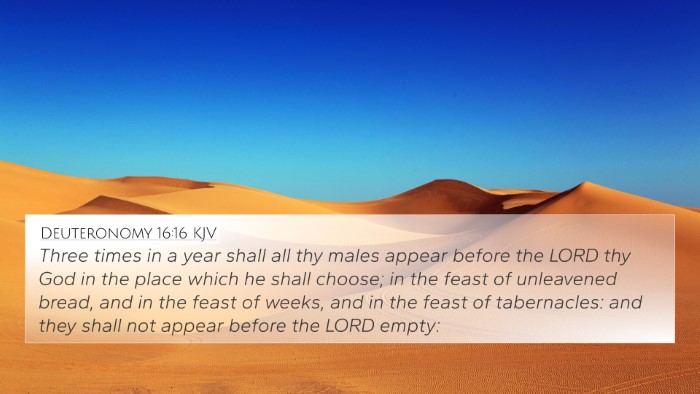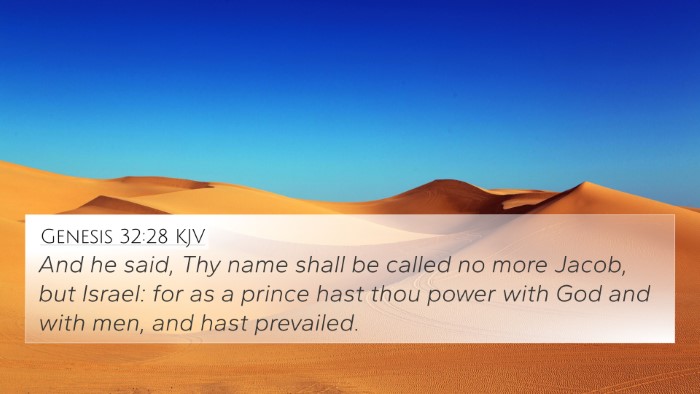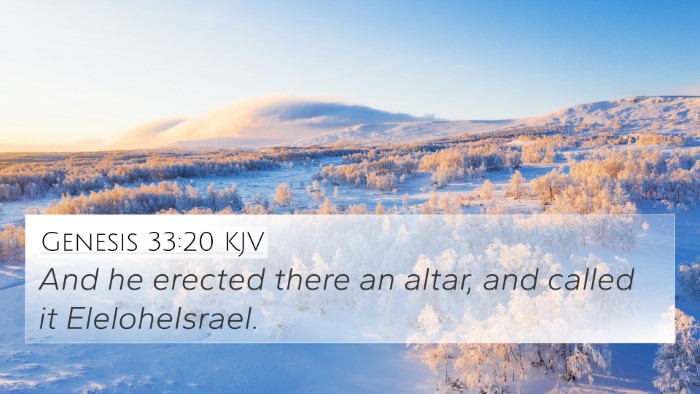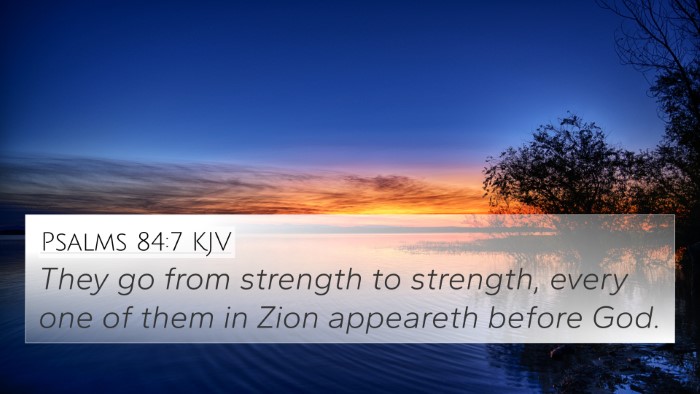Understanding Exodus 34:23
Exodus 34:23 states: "Thrice in the year shall all your men children appear before the Lord God, the God of Israel." This commandment, given to the Israelites, outlines important theological and practical aspects related to worship and community identity.
Historical Context
This verse occurs in the context of God reaffirming His covenant with Israel after they had sinned with the golden calf. The emphasis on assembly before God signifies a restoration of their relationship with Him.
Key Themes and Interpretations
-
Covenant Relationship:
According to Matthew Henry, this verse emphasizes the covenant relationship between God and Israel. The men of Israel are called to appear before God three times a year to celebrate the major feasts and reaffirm their loyalty to Him.
-
Importance of Gathering:
Albert Barnes highlights the significance of communal worship. Regular gatherings at specified times strengthen communal ties and enhance spiritual discipline among the people.
-
Feast Significance:
Adam Clarke elaborates on the festivals, namely the Passover, Feast of Weeks, and Feast of Tabernacles, which serve as reminders of God’s provision and deliverance.
-
Spiritual Accountability:
This verse also reflects the idea of accountability within the community, as shared worship fosters relationships and shared responsibility among the people.
Cross-References
Exodus 34:23 forms connections with several other Bible verses, enriching its theological depth:
- Deuteronomy 16:16: Discusses the necessity of appearing before the Lord during major feasts.
- Exodus 23:17: Reinforces the commandment for all males to appear before God three times a year.
- Leviticus 23:4-44: Provides details on the various feasts that were to be observed.
- Isaiah 1:12-14: Critiques empty rituals, emphasizing the heart behind worship.
- Hebrews 10:25: Encourages believers to gather together and stimulate one another towards love and good deeds.
- John 4:24: Affirms the importance of worshiping God in spirit and truth.
- Luke 2:41-42: Describes the annual pilgrimage of Jesus’ family to Jerusalem for Passover.
- 1 Corinthians 5:7-8: Relates the Passover to Christ, emphasizing the new covenant in Him.
- Colossians 2:16-17: Indicates that the Old Testament feasts foreshadow Christ’s fulfillment.
- Matthew 26:17-19: Details the preparation for the Passover meal by Jesus and His disciples.
Conclusion
Understanding Exodus 34:23 involves recognizing the theological implications of communal worship and its importance to the identity of Israel as God’s chosen people. The three annual festivals not only serve as reminders of God's deliverance but also as a means of fostering community and accountability. This verse opens up a rich dialogue across both Testaments, linking the historical practices of Israel with the essence of Christian worship today.
Tools for Further Study
- Bible concordances to find cross-references.
- Bible cross-reference guides for in-depth study.
- Comprehensive Bible reference resources for thematic connections.
- Essentials for cross-referencing Bible study methods.
- Bible chain references for exploring related passages.
Exploring Cross-References
For those interested in how to find cross-references in the Bible, this verse serves as an excellent starting point. It invites believers to draw connections with both the Old and New Testaments, unveiling the intricate ways God has woven His plan through scripture.
Final Thoughts
By delving into Exodus 34:23 and its related verses, one can gain a profound understanding of the continuity of God's promises and the significance of worship across different contexts and times.
